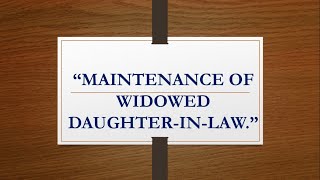1. Heard Learned Counsel for the parties.
2. Petitioner, who is employee of Jal Nigam, is aggrieved by impugned notice by which he is informed for superannuation at the age of 58 years. Present writ petition has been filed under Article 226 of the Constitution of India with the prayer that he is entitled to continue up to the age of 60 years.
3. Controversy, in question has been settled by a Division Bench of this Court vide judgment and order dated 29.7.2010 passed in Writ Petition No. 1595 (SB) of 2009 and other connected writ petitions.
4. Operative portion of the judgment and order dated 29.7.2010 is reproduced as under:
Therefore, the Regulations 2005 which have created discriminatory two classes of employees regarding retirement age is not sustainable in the eye of law. Moreover, Section 38 of the U.P. Municipalities Act, 1916 provides the age of retirement from service of all officers of the Centralised Services shall be 60 years beyond which no one shall ordinarily be retained in the service of the Palika. There is no reason why the similar benefit cannot be given to the employees of the Nigam alike. It may be mentioned that in the case of B.S. Yadav (supra), the benefit pertaining to the enhancement of the age was never denied as discussed above. In the instant case, there is no question of the reduction of the age. Here are the cases where the question is for the enhancement of the age to eliminate the discrimination as stated above. Being local authority also the benefit of 60 years will be given to all employees of the Jal Nigam regardless to the modes of retirement.
By considering the totality of the facts and circumstances of the cases in hand and out of abundance of caution as per maximum Ex Abun Danti Cautela, we are of the view that there is no reasonable nexus differentia to create the classification of employees which was created by the Regulation 2005 and same was never published in gazette and it was published first time in the newspaper on 8th November, 2009. So, Regulations 2005 are ultra vires and discriminatory as per Article 14 of the Constitution of India and not sustainable in the eye of law for the reasons mentioned above. Therefore, all the writ petitions are allowed and we set aside the Regulations 2005. So, all the employees of the Jal Nigam shall retire on attaining the age of 60 years like State Government employees.
However, this benefit of the enhancement of age shall be confined to the persons who have filed the writ petition before their retirement and obtained the interim order. But interim order was vacated by an order passed by this Court on 10.2.2010 (by the Bench consisting of Hon''ble Sunil Ambwani, J. and Hon''ble Dr. Satish Chandra, J.) where it was observed
The petitioners appointed after the establishment of the Jal Nigam on 18.06.1975 are covered by the U.P. Jal Nigam (Retirement on Superannuation) Regulation, 2005. They have superannuated and are not entitled to continue up to 60 years. They can be adequately compensated in terms of pay and allowances if the writ petition succeeds. The interim orders in all the writ petitions are therefore vacated.
Similar benefit is already available to the employees who are continuing in service by virtue of interim order passed by the competent court. They should continue till the age of 60 years.
The law helps those who are vigilant and not to those who go to sleep as per maxim Vigilantibus, et non Dormintibus, Jura Sub Veniunt. so, this benefit will not be given to the employees who peacefully retired on attaining the age of 58 years and never came before the Court. But there may be another class of the employees who came before this Court and could not get the interim order but writ petitions were admitted. Admittedly, these employees have not worked. So, on the basis of no pay no work, they will not be entitled for arrears. However, their back wages will be restricted @20% of the basic salary as per the ratio laid down in the case of M/s Gvalli v. Andhra Education Society 2010 AIR 1105 SC. Lastly, it is clarified that the extended service will be counted for all the purpose to the above mentioned employees. The petitions are allowed. No cost.
5. It has been admitted at Bar that controversy is covered by aforesaid judgment of this Court.
6. In view of settled proposition of law, we dispose of writ petition finally in terms of judgment and order dated 29.7.2010 passed in Writ Petition No. 1595 (SB) of 2009. The benefit of the judgment and order (supra) shall also be provided to the petitioner of present writ petition with regard to age of superannuation.

